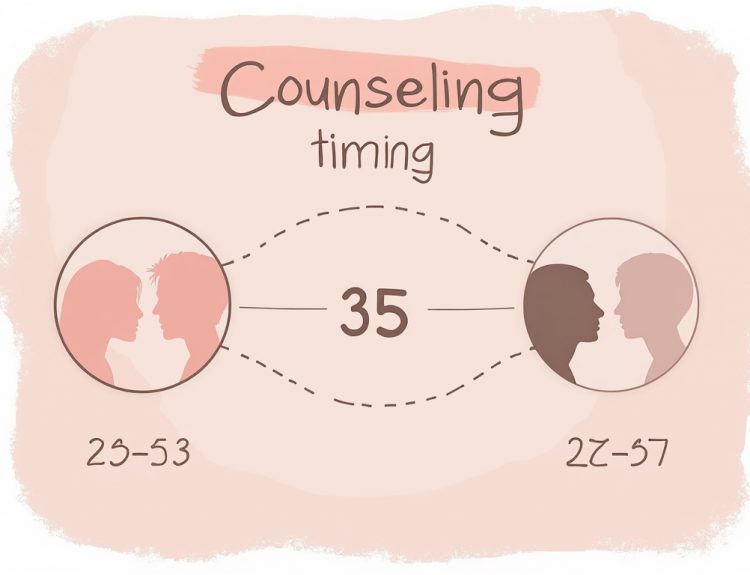
When Your Partner Has an Addiction: 3 Counseling Guidelines for Supporting Spouses
Reading time: 8 minutes
Discovering your partner struggles with addiction feels like your world just shifted on its axis. You’re not alone in this journey—millions of spouses navigate this challenging terrain every day, searching for the delicate balance between support and self-preservation.
Table of Contents
- Understanding Addiction’s Impact on Relationships
- Three Essential Counseling Guidelines
- Building Healthy Communication Patterns
- Protecting Your Own Well-Being
- When to Seek Professional Help
- Your Support Roadmap: Next Steps
- Frequently Asked Questions
Understanding Addiction’s Impact on Relationships
Addiction doesn’t just affect the person struggling—it fundamentally alters relationship dynamics. According to the National Institute on Drug Abuse, addiction impacts approximately 23 million Americans annually, meaning countless partners are seeking guidance on how to navigate this complex situation.
Here’s the straight talk: Supporting a partner with addiction requires strategic emotional navigation, not just good intentions. The traditional “love conquers all” approach often leads to codependency and emotional burnout.
The Relationship Transformation Process
When addiction enters a relationship, three critical shifts typically occur:
- Trust erosion becomes a daily reality
- Communication patterns shift toward crisis management
- Emotional intimacy often gets replaced by caretaking dynamics
Quick Scenario: Sarah discovered her husband Mark’s gambling addiction after finding mysterious credit card charges. Initially, she tried fixing the problem by taking control of finances, but this only increased tension and secrecy in their marriage.
Three Essential Counseling Guidelines for Supporting Spouses
Professional counselors consistently recommend three foundational approaches that transform how spouses can effectively support their partners while maintaining their own emotional health.
Guideline 1: Establish Healthy Boundaries, Not Barriers
Boundaries protect your emotional well-being without abandoning your partner. Dr. Melody Beattie, renowned codependency expert, emphasizes that “boundaries are not walls—they’re gates with hinges.”
Practical Implementation:
- Set clear consequences for specific behaviors
- Communicate your limits before crisis moments
- Distinguish between supporting recovery and enabling addiction
- Maintain consistency in boundary enforcement
Real Example: Jennifer told her partner David, “I’ll support your recovery efforts, but I won’t give you money or lie to cover for your absences.” This clarity helped David understand expectations while protecting Jennifer from financial manipulation.
Guideline 2: Focus on Your Response, Not Their Recovery
You cannot control your partner’s addiction journey, but you can master your responses to it. Research from the American Psychological Association shows that spouses who focus on their own emotional regulation report 40% better relationship satisfaction during recovery processes.
Response vs. Reaction Comparison
Guideline 3: Build Your Support Network Independent of Your Partner
Isolation intensifies the challenges of supporting someone with addiction. Creating your own support system provides emotional resilience and practical guidance.
Network Building Strategy:
- Join spouse support groups (Al-Anon, Nar-Anon)
- Maintain friendships outside the addiction context
- Engage with professional counselors individually
- Participate in activities that restore your energy
Building Healthy Communication Patterns ️
Communication during addiction recovery requires intentional strategy. Traditional relationship communication often becomes ineffective when addiction behaviors dominate interactions.
| Communication Method | Effectiveness Rating | Best Used For | Timing |
|---|---|---|---|
| “I” Statements | High (90%) | Expressing feelings without blame | Calm moments |
| Active Listening | High (85%) | Understanding perspectives | Recovery discussions |
| Boundary Setting | Medium (75%) | Establishing limits | Before crisis |
| Confrontation | Low (30%) | Emergency situations only | Crisis intervention |
| Scheduled Check-ins | High (88%) | Progress monitoring | Weekly routine |
The LEAP Communication Framework
Professional counselors recommend the LEAP approach for difficult conversations:
- Listen without immediately problem-solving
- Empathize with their struggle while maintaining boundaries
- Ask open-ended questions about their experience
- Paraphrase what you heard to ensure understanding
Protecting Your Own Well-Being ️
Self-care isn’t selfish—it’s strategic. Research from Johns Hopkins University indicates that spouses who prioritize their own mental health during their partner’s recovery are 60% more likely to maintain long-term relationship stability.
The Self-Care Paradox
Many spouses feel guilty focusing on themselves when their partner is struggling. However, emotional depletion makes you less capable of providing meaningful support.
Case Study: Michael spent two years trying to “fix” his wife’s alcohol addiction by monitoring her activities and managing her responsibilities. This approach led to his own anxiety disorder and ultimately hindered her recovery process. When Michael began individual therapy and established personal boundaries, both partners experienced improved emotional health.
Essential Self-Care Strategies
- Maintain your own therapy relationship separate from couples counseling
- Preserve friendships and hobbies that existed before addiction became central
- Practice stress management techniques like meditation or exercise
- Set financial boundaries to protect your security
- Create addiction-free zones in your schedule and physical space
When to Seek Professional Help
Professional intervention becomes crucial when certain warning signs emerge. Dr. Kevin McCauley, addiction specialist, notes that “supporting someone with addiction requires professional guidance—it’s not a journey to navigate alone.”
Critical Intervention Points
Seek immediate professional help when:
- Safety concerns arise for you or family members
- Financial security becomes threatened
- Your mental health deteriorates significantly
- Children are involved and their well-being is at risk
- Legal consequences begin affecting the family
Types of Professional Support
Individual Therapy: Provides personal coping strategies and emotional processing space.
Couples Counseling: Addresses relationship dynamics when both partners are ready for recovery work.
Support Groups: Offers peer connection and shared experience validation.
Intervention Specialists: Guides formal intervention processes when necessary.
Your Support Roadmap: Next Steps ️
Supporting a partner with addiction requires strategic planning, not just emotional investment. Here’s your practical roadmap for moving forward with intention and self-preservation:
Immediate Actions (This Week)
- Assess your current emotional state honestly—rate your stress, anxiety, and relationship satisfaction on a scale of 1-10
- Identify one boundary you need to establish immediately for your well-being
- Research local support resources including Al-Anon meetings and individual therapists specializing in addiction
- Create a safety plan if physical or emotional safety concerns exist
Short-term Goals (Next Month)
- Attend at least two support group meetings to explore whether this resource fits your needs
- Schedule individual therapy to develop personalized coping strategies
- Establish one addiction-free zone in your schedule or physical space
- Have one honest conversation with your partner using the LEAP framework
Long-term Strategy (Next 3-6 Months)
- Evaluate relationship progress regularly with professional guidance
- Build a comprehensive support network that doesn’t rely solely on your partner’s recovery
- Develop financial independence strategies to protect your security
- Consider couples therapy once individual healing has progressed
Remember: Your journey supporting someone with addiction is ultimately about creating sustainable love—love that doesn’t deplete you while still honoring your commitment. The strongest relationships emerge when both partners take responsibility for their own healing journey.
As addiction treatment continues evolving toward family-centered approaches, your role as a supportive spouse becomes increasingly recognized as crucial to long-term recovery success. You’re not just witnessing someone else’s transformation—you’re actively participating in reshaping how love survives and thrives through life’s most challenging circumstances.
What’s the one boundary you’ve been afraid to set that could transform your relationship dynamic starting today?
Frequently Asked Questions
How do I know if I’m enabling my partner’s addiction versus supporting their recovery?
Enabling removes consequences from your partner’s choices, while supporting maintains accountability. You’re enabling if you’re making excuses for their behavior, providing money that could fund addiction, or lying to others to protect them from consequences. Support involves encouraging treatment, attending recovery meetings with them, and maintaining boundaries while expressing love. A key indicator: ask yourself if your actions make it easier for them to continue using or easier for them to face reality.
Should I give my partner ultimatums about their addiction?
Ultimatums can be appropriate when your safety, children’s welfare, or financial security are at risk, but they should be carefully considered and professionally guided. Effective ultimatums are specific, have clear timelines, and consequences you’re genuinely prepared to follow through on. For example, “If you don’t enter treatment within 30 days, I will move out with the children” is more effective than vague threats. However, ultimatums work best when your partner is already contemplating change—they rarely motivate someone who isn’t ready for recovery.
How long should I wait for my partner to get sober before considering leaving?
There’s no universal timeline for this deeply personal decision. Factors to consider include: your partner’s willingness to seek treatment, progress in recovery efforts, impact on children, your own mental health, and safety concerns. Some couples navigate this journey for years successfully, while others need to separate within months for everyone’s well-being. Focus on setting measurable milestones (like consistent therapy attendance or sobriety periods) rather than arbitrary time limits. Professional counseling can help you evaluate your specific situation and make decisions aligned with your values and circumstances.

Article reviewed by Krzysztof Wiśniewski, Mature Dating Advisor | Finding Love After 40, on May 29, 2025



